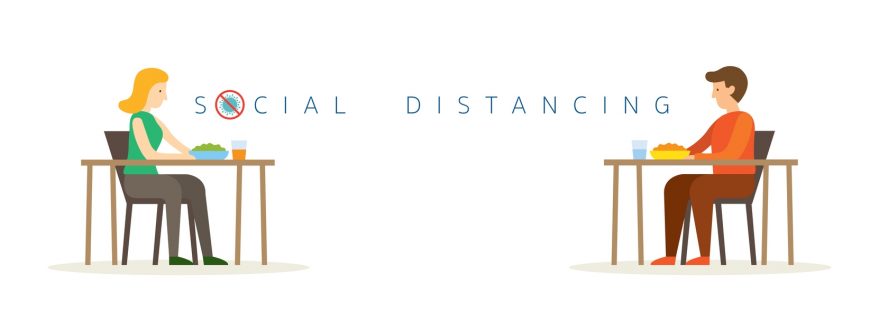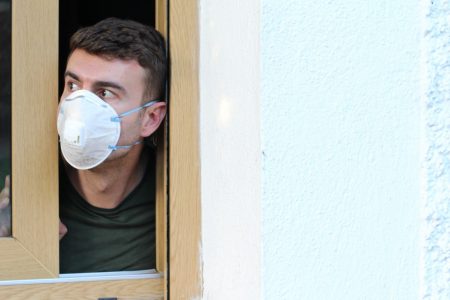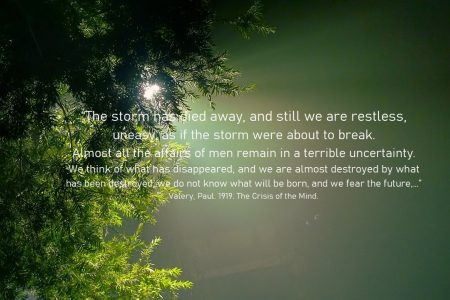Keeping social distance obliges others to be prosocial too
Social distancing is a good example of prosocial behaviour that gives other people a choice. It also strengthens autonomy and self-determination.
Originally published in Dutch on NRC.nl
When it comes to stopping the coronavirus, social distancing is the name of the game. The message is loud and clear, and most people faithfully stick to the rules. Yet, there are still some people who don't seem to take it all that seriously. The other day, at the DIY store, a man told me light-heartedly that everything was fine as long as you didn't cough – and my request for more distance at the checkout was kindly but firmly brushed off. I don't think this man meant it badly. He just wasn't all that worried about the coronavirus himself. Nevertheless, this is an excellent example of a serious lack of ‘social mindfulness’: consideration for others' wellbeing. Social mindfulness refers to the ability to see things from the other person's point of view and apply this insight. The standard test for social mindfulness is built on a situation that most people will recognize: There are two of you, and you have to choose a pen from a jar containing two blue pens and one black one. You have to choose first, and are not allowed to confer. Which pen do you choose? Make up your mind now, before you read on.
Autonomy
If you choose the black pen, only the two blue ones will be left, so the other person won't have a real choice; if you choose one of the blue pens, however, the other person – like you – will have the same amount of choice. Psychology research shows that people usually like being able to choose for themselves. This has to do with autonomy and self-determination. Our own research shows that people who allow others to choose indeed are generally viewed as nicer, and tend to be trusted more. This even holds when it's a simple matter of choosing a pen. In this situation, allowing the other person to choose is just a small gesture that costs little to nothing. But this simple principle can have major consequences.
For example, let's return to the situation in the DIY store and examine it in this light. In this case, the other man chooses the black pen: I have no choice but too little distance. It makes no difference to the man; he’s happy to take the risk. That's up to him. But the blue pen – taking back a step or two – would have cost him very little, and saves me the risk of becoming infected. Which would in turn have reduced my risk of infecting others, including my partner, my family, and my elderly parents – but also others in the DIY store or the supermarket, in the village where I live, and further afield. Taking it to extremes, we could argue that the man's choice could have the effect of prolonging the crisis unnecessarily. After all, the whole pandemic probably started somewhere with a single patient.
Group relations
In our publications we usually refer to social mindfulness as 'low-cost prosociality': prosocial behaviour that costs little but does contribute to making our interactions with others smoother and more respectful. Simply signaling to others that they are seen and acknowledged is already a big step in the right direction. And that’s where those small acts of social mindfulness come in. It applies to many situations, from dyadic interpersonal to broader intergroup relations. More social mindfulness will not immediately stop wars or resolve protracted conflicts, but can certainly help create a more prosocial environment. And that, in turn, is of great importance for the personal well-being of individuals, and of society at large.
But, as I realised in the DIY store, that's not all. Social mindfulness can genuinely contribute to a safer world. Keeping your distance means showing respect by making sure that at least you don't infect others, even if you’re not all that worried about the virus yourself. In that way, you’re also giving the people you meet the choice – and the obligation – to show the same respect for others. After all, that is the best option we currently have to combat the further spread of the virus. Being socially close sometimes means giving people a chance to stand away a little further. Hence, social mindfulness is of vital importance. Especially in these times of corona.





